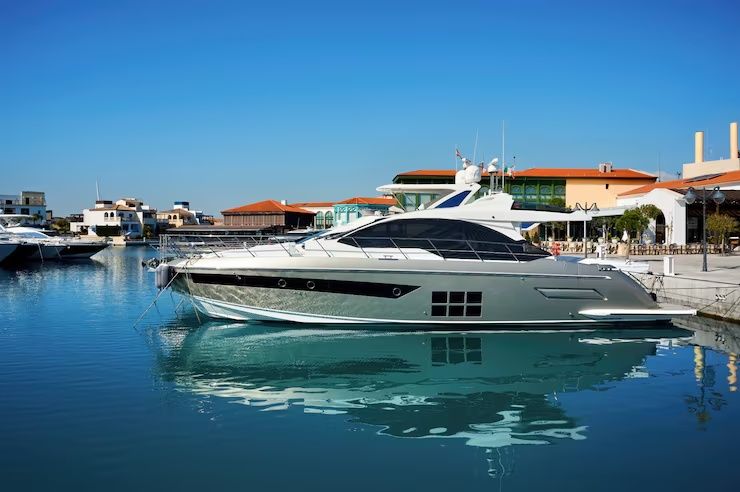Luxury yacht charters represent a unique segment of global travel and leisure. Unlike cruise ships, which cater to large groups, yacht charters provide a more private and personalized experience on the water. These vessels range from sleek sailing yachts to large motor yachts equipped with advanced amenities such as pools, spas, and even helipads.
Importance
Yacht charters matter today for several reasons.

-
For Travelers: They provide flexibility, privacy, and customized experiences not available on commercial cruises.
-
For Tourism: They contribute to local economies, particularly in regions like the Mediterranean, Caribbean, and Southeast Asia.
-
For the Environment: The rise of sustainable yachting highlights eco-friendly practices such as hybrid engines and reduced emissions.
-
For the Luxury Market: Yacht charters are a status symbol, often associated with high-net-worth individuals and celebrities.
| Key Stakeholder | Benefit of Yacht Charters |
|---|---|
| Travelers | Personalized itineraries, private leisure |
| Local Communities | Tourism income, local business support |
| Environment (with trends) | Push toward green technologies in yachting |
| Luxury Industry | Growth of exclusive lifestyle services |
Recent Updates (2023–2024)
In the past year, yacht charters have seen notable developments:
-
Eco-Friendly Yachts (2023): Hybrid-powered and solar-assisted yachts gained popularity as sustainability became central to luxury travel.
-
Growth of Experiential Travel (2023–2024): Travelers are choosing themed charters, such as wellness-focused trips with onboard yoga instructors or culinary charters featuring guest chefs.
-
Tech Integration (2024): Smart yacht systems now include advanced connectivity, onboard AI assistants, and VR entertainment systems.
-
Celebrity Influence (2023): High-profile figures such as Beyoncé, Cristiano Ronaldo, and Kendall Jenner were reported enjoying yacht holidays, increasing public curiosity about this form of travel.
-
Post-Pandemic Demand (2023): Interest in private yacht charters rose significantly as people sought safer, less crowded travel options.
Laws or Policies
Yacht charters are regulated differently across regions, with policies focusing on safety, taxation, and environmental impact.
-
United States: The Jones Act restricts foreign-built yachts from operating commercially in U.S. waters without special exemptions. Charter yachts must also comply with U.S. Coast Guard safety standards.
-
European Union: VAT (Value Added Tax) applies to charters, though rates differ between countries (e.g., Italy, France, Spain). EU laws also regulate crew employment and environmental standards.
-
Caribbean Nations: Popular charter regions like the British Virgin Islands require licensing, customs clearance, and compliance with maritime safety rules.
-
Environmental Policies: Many regions now restrict anchoring in sensitive coral reef areas and encourage the use of eco-certified vessels.
| Region | Key Regulation | Impact on Yacht Charters |
|---|---|---|
| U.S. | Jones Act, Coast Guard standards | Limits on foreign yachts, safety |
| EU | VAT rules, crew labor laws | Costs vary by country |
| Caribbean | Local licensing, customs checks | Ensures compliance with safety |
| Global Oceans | Marine protected areas, eco-yachting rules | Encourages sustainable practices |
Tools and Resources
Planning a yacht charter involves careful research, and several tools can help individuals make informed decisions.
-
Charter Booking Platforms
-
Boat International: Listings of luxury yachts with specifications.
-
Y.CO and Fraser Yachts: Comprehensive charter services with itinerary planning.
-
CharterWorld: Global database of available yachts.
-
-
Cost Calculators
-
Yacht Charter Cost Calculator (various online services): Helps estimate expenses, including fuel, crew, and docking fees.
-
-
Navigation and Itinerary Apps
-
Navionics: Marine navigation charts for sailors and charter guests.
-
Windy: Weather forecasts for planning sailing routes.
-
-
Sustainability Tools
-
Water Revolution Foundation: Provides resources on eco-friendly yachting practices.
-
Blue Flag Marinas: Helps travelers identify environmentally responsible docking areas.
-
| Tool Category | Examples | Purpose |
|---|---|---|
| Booking Platforms | Boat International, CharterWorld | Compare yachts and book charters |
| Cost Calculators | Online charter pricing tools | Estimate total trip expenses |
| Navigation Apps | Navionics, Windy | Plan safe and efficient routes |
| Sustainability Guides | Water Revolution Foundation, Blue Flag | Support eco-friendly practices |
FAQs
1. How much does a luxury yacht charter cost?
Costs vary widely based on yacht size, destination, and duration. Smaller yachts may start at around $15,000 per week, while superyachts with extensive amenities can exceed $500,000 per week, excluding additional expenses such as food, fuel, and crew tips.
2. Do I need a license to charter a yacht?
If you hire a crewed yacht, no license is required as professionals operate the vessel. However, for bareboat charters (without crew), many countries require a sailing license or proof of experience.
3. Are yacht charters environmentally friendly?
Traditional yachts consume significant fuel, but newer eco-yachts with hybrid engines and advanced waste management systems are reducing environmental impacts. Many charter companies now promote sustainability-focused itineraries.
4. Why are celebrities often linked to yacht charters?
Yachts offer privacy, exclusivity, and flexibility—qualities that appeal to public figures seeking a break from busy lifestyles. Media coverage of celebrity yacht vacations also reinforces their association with luxury living.
5. What destinations are most popular for yacht charters?
Top destinations include the Mediterranean (French Riviera, Greece, Italy), Caribbean (Bahamas, British Virgin Islands), and Southeast Asia (Thailand, Indonesia). Seasonal weather patterns often determine popularity.
Conclusion
Luxury yacht charters are more than a symbol of wealth; they represent a blend of adventure, exclusivity, and modern travel innovation. With rising interest in sustainability, enhanced technologies, and growing cultural influence through celebrity experiences, yacht charters continue to evolve.
For travelers seeking privacy and flexibility, yacht charters provide a unique way to explore the world’s oceans while contributing to local economies and adopting more sustainable practices.